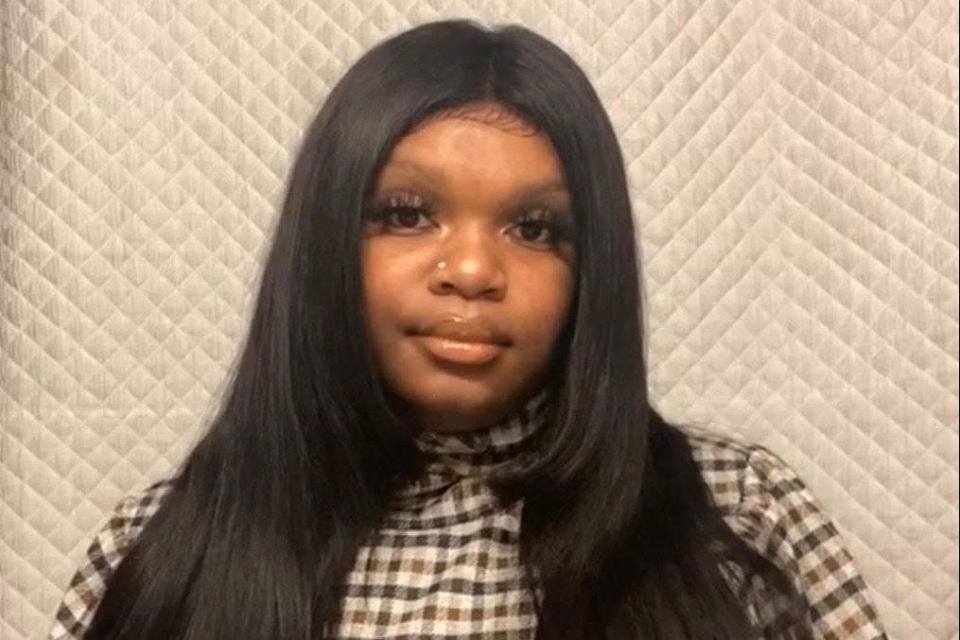Darnella Frazier, teen who recorded George Floyd's murder, awarded Pulitzer Prize Special Citation
- Oops!Something went wrong.Please try again later.
The teenager who recorded the infamous video showing George Floyd's murder at the hands of Minneapolis police was awarded a 2021 Pulitzer Prize Special Citation on Friday.
Darnella Frazier won the citation "for courageously recording the murder of George Floyd, a video that spurred protests against police brutality around the world, highlighting the crucial role of citizens in journalists' quest for truth and justice," according to the Pulitzer Prize Board.
The award comes with a monetary prize consistent at least with the other prizes, $15,000, according to Edward Kliment, a spokesperson for the Columbia University Pulitzer Prize organization. Previous special citations have been awarded to Ida B. Wells, Aretha Franklin and Duke Ellington.
Former police officer Derek Chauvin was found guilty in April on all counts in Floyd's murder on May 25, 2020, outside a Cup Foods store in Minneapolis. Frazier's video was a key piece of evidence in the trial from opening statements through closing arguments.
Frazier, then 17 years old, was visiting the store that Memorial Day with her 9-year-old cousin when she saw Chauvin and several other officers restraining Floyd on the ground. She recorded the incident on her cell phone as she and other bystanders pleaded with them to get off Floyd, who repeatedly said he couldn't breathe.
Darnella Frazier: Teen who recorded George Floyd's murder reflects on his death a year later
Pulitzer Prizes 2021: USA TODAY Network honored with 3 nods, including win for Indy
Frazier's video of the incident went viral, drawing attention to Floyd's death and ultimately propelling thousands of protests against police brutality across the U.S. and abroad.
"It’s a little easier now, but I’m not who I used to be. A part of my childhood was taken from me," Frazier wrote in a statement posted to her Facebook page last month, on the anniversary of Floyd's murder.

"A lot of people call me a hero even though I don’t see myself as one," she wrote. "I was just in the right place at the right time. Behind this smile, behind these awards, behind the publicity, I’m a girl trying to heal from something I am reminded of every day."
Frazier and a spokesperson did not immediately respond to requests for comment on the award.
In December, Frazier was awarded the 2020 PEN/Berenson Courage Award from Oscar-winning director Spike Lee. PEN America, the literary and human rights organization, honored Frazier along with other activists, artists and former president Barack Obama.
Frazier testified at Chauvin's trial in March. She cried on the witness stand as she told prosecutor Jerry Blackwell that when she looked at Floyd, she saw her Black relatives and friends. "That could've been one of them."
'It wasn't right':The teenager who recorded George Floyd's death on video, says it changed her life
George Floyd: 3 former police officers accused in Floyd's murder won't stand trial until March 2022
"When I look at George Floyd, I look at my dad, I look at my brothers, I look at my cousins, my uncles," Frazier said at the time. She said she has stayed up some nights "apologizing and apologizing to George Floyd for not doing more and not physically interacting and not saving his life."
But, she said, "It’s not what I should have done. It’s what he (Chauvin) should have done."
Three other former Minneapolis officers accused of aiding and abetting in Floyd's murder will stand trial in March 2022, so a federal case against them can first go forward, a judge ruled last month.
Contributing: Chelsey Cox and N'dea Yancey-Bragg, USA TODAY
This article originally appeared on USA TODAY: Darnella Frazier wins Pulitzer Prize citation for George Floyd video

